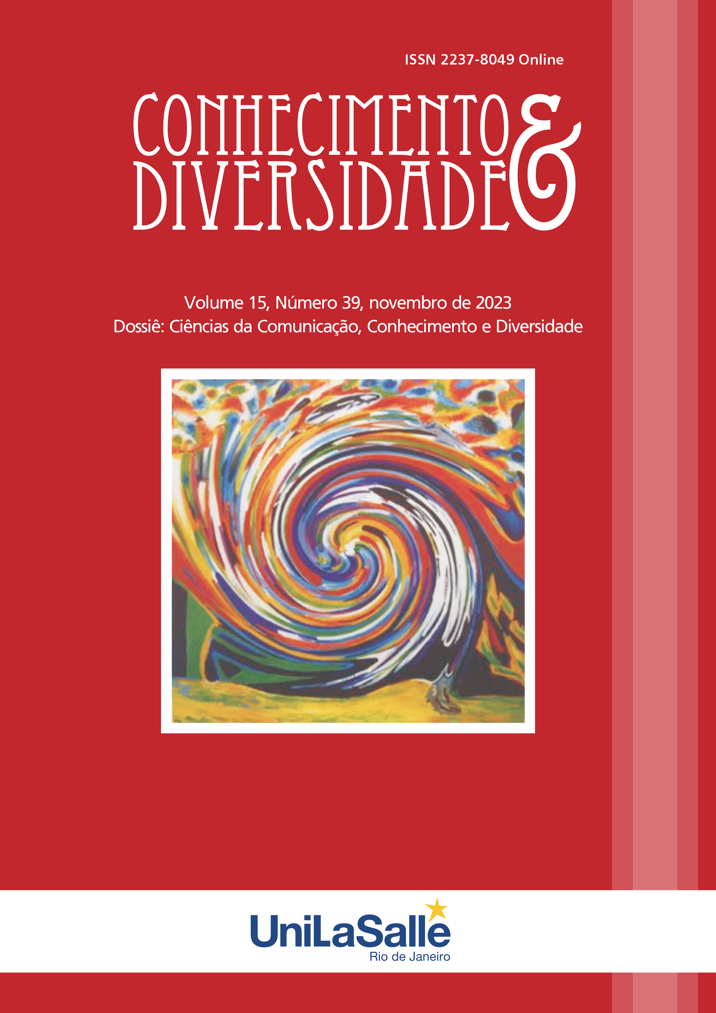DIGITAL COMMUNICATION AND DIGITIZATION PROCESS IN MOROCCAN TERRITORIAL COLLECTIVITIES
A DISCOURSE ANALYSIS
DOI:
https://doi.org/10.18316/rcd.v15i39.11152Keywords:
Digital communication, Digitalization process, Moroccan territorial collectivities, Discourse analysisAbstract
Since the Covid pandemic, the process of digitalization and the resulting digital communication has been the subject of debate within moroccan territorial collectivities. Based on this situation, we have chosen to use an inductive approach based on a discourse analysis, whose objective is to bring an evaluative reading to the digitization process and to highlight these new communication modalities that are linked to it, in order to be able to make hypotheses in this sense. The results of our research highlight four major findings: digital communication is adopted by territorial collectivities that seek to respond to essentially external constraints; the preparation practices for the digitization process that these collectivities have undertaken do not predispose them to an effective implementation of the approach; a possible link between the passive resistance to the approach in moroccan territorial collectivities and the weak implication in the formalization of digitization procedures; and finally, the repercussion of digitization on the collectivity is short term and essentially structural.
References
ARIOLI, Q. (2020). « Enjeux et acteurs de la transformation digitale : comment réussir sa digitalisation ? Étude de l’entreprise AXA ». Gestion et management 02991437. Disponible à l’adresse: https://dumas.ccsd.cnrs.fr/dumas-02991437.
BARDIN, L. (2007). L’analyse de contenu (14ème édition). Paris : Presses universitaires de France.
BASTIEN, L. (2017). « Cognitive Computing : Définition, fonctionnement et secteurs d’application ». LeBigData.fr. [en ligne]. 20 juin 2017. Disponible à l’adresse: https://www.lebigdata.fr/cognitive-computing-definition.
BASTIEN, L. (2018). « Predix : tout savoir sur la plateforme cloud de l’IOT industriel », Le Big Data.fr. [en ligne]. 2 juillet 2018. Disponible à l’adresse: https://www.lebigdata.fr/predix-tout-savoir.
BRANGIER, E., HAMMES-ADELE, S., BASTIEN, J.M. (2010). « Analyse critique des approches de l’acceptation des technologies : de l’utilisabilité à la symbiose humain-technologie-organisation », European Review of Applied Psychology, Volume 60, N°2, (pp. 129-146). DOI:10.1016/J.ERAP.2009.11.002.
BRENNEN, J. S., KREISS, D. (2016). « Digitalization ». In The International Encyclopedia of Communication Theory and Philosophy. John Wiley & Sons, Ltd. pp. 1‑11. ISBN 978-1-118-76680-4.
BREY, P. A. E. (2017). Ethics of emerging technologies. In Sven Ove Hansson (Ed.), The Ethics of Technology: Methods and Approaches (pp. 175-192). Rowman & Littlefield Intenational. Disponible à l’adresse: http://ethicsandtechnology.eu/wp-content/uploads/downloadable-content/Brey-2017-Ethics-Emerging-Tech.pdf.
BURMAOGLU, S., PORTER, A.L., & SARTANAER, O. (2019). « Conceptual definition of technology emergence: A long journey from philosophy of science to science policy », Technology and Society 59. Disponible à l’adresse: https://doi.org/10.1016/j.techsoc.2019.04.002.
DEMIRKAN, H., SPOHRER, J.C., et WELSER, J.J. (2016). « Digital innovation and strategic transformation ». It Professional 18(6). Vol. 18, n°. 6, pp. 14‑18. Disponible à l’adresse: http://dx.doi.org/10.1109/MITP.2016.115.
PERKEL, J.M. (2017). « The internet of things comes to the lab », Nature News 542. Disponible à l’adresse: https://doi.org/10.1038/542125a.
Downloads
Published
Issue
Section
License
Copyright (c) 2023 Amina Ech-Chbani

This work is licensed under a Creative Commons Attribution 4.0 International License.
As recommended by the Public Knowledge Project, RCD adopts for its articles a CREATIVE COMMONS Attribution CC BY 4.0 license.
This license allows others to distribute, remix, adapt and build upon your work, even commercially, as long as they credit you for the original creation.
This is the most appropriate license offered.
Recommended for maximum dissemination and use of licensed materials.



